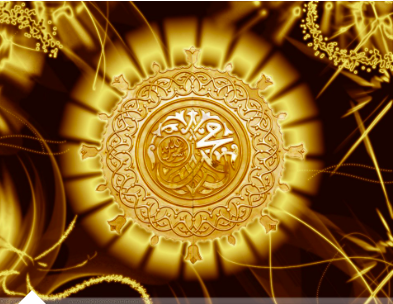Muhammad – Was he the Last Nabi or the Last Rasool?


People familiar with Islam often get confused, or are unable to differentiate between a Rasool and a Nabi. Even those who follow Islam are at times hazy about this. So here is the distinction
Messenger = Rasool
Prophet = Nabi
Muslims have a firm belief that Muhammad is the last Messenger of Allah. They claim that after Muhammad, no messenger will be sent by Allah and even in the last sermon, Muhammad mentioned that today the religion is complete. Allah also says so in Quran 5:3
“This day I have perfected for you your religion and completed My favor upon you and have approved for you Islam as religion.”
Muslims also hold that if a person is bestowed with the title of Messenger (Rasool), then he automatically becomes a Prophet (Nabi). Now the difference between a Messenger (Rasool) and a Prophet (Nabi), according to the Muslim understanding, is that if a person has been given a book, it denotes that he is a Messenger (Rasool). But being a Prophet alone does not qualify a person to get the book, whereas being a Messenger ensures that you have a holy book to your claim.
If we try to simplify this, we can take the example of someone who has completed a Masters’ degree in any subject. That person will automatically be a Graduate in order to apply for a Masters course. But if a person has completed his graduation, this does not mean that he must also be a Postgraduate. Taking this explanation further, we can say that a Prophet is a Graduate, and a Messenger is a Post Graduate. They believe that every Messenger is automatically also a Prophet, but every Prophet will not necessarily be a Messenger.
To substantiate this stand, the Muslims analyze Quran 33:40 in their own manner
“Muhammad is not the father of [any] one of your men, but [he is] the Messenger of Allah and last of the prophets. And ever is Allah, of all things, Knowing.”
They hold that if Muhammad is the Khatim un Nabiyyeen, then by definition he is also the last Messenger. The claim about Muhammad being Khatimun Nabiyeen has already been challenged in a previous article available here.
https://kreately.in/wp-admin/post.php?post=253988&action=edit&lang=en
Here we will assume that the understanding of Muslims about Muhammad being Khatimun Nabiyeen is correct, and analyze the next part of their claim where they hold that the former is a seal to verify the latter, i.e. Muhammad automatically also become the last Messenger.
However, the Quran itself refutes this claim of the Muslims. Here is how this argument can be challenged, by analyzing Quran 3:81
“”And [recall, O People of the Scripture], when Allah took the covenant of the prophets, [saying], “Whatever I give you of the Scripture and wisdom and then there comes to you a messenger confirming what is with you, you [must] believe in him and support him.” [Allah] said, “Have you acknowledged and taken upon that My commitment?” They said, “We have acknowledged it.” He said, “Then bear witness, and I am with you among the witnesses.””
In this verse, the Quran mentions “the covenant of the prophets”, which means all the Prophets who were sent from Adam until Muhammad are included in this phrase. If we apply the claim of Muslims that Muhammad is the last Prophet, then he automatically falls into this covenant. Thus Allah is also addressing Muhammad here, and saying that He will send another Messenger (Rasool) who will have to be believed in and helped by all Prophets. This leaves a door open for the possibility that according to Allah, there could well be another Messenger after Muhammad.
Many Muslims will still argue that once Allah has declared someone as a Messenger then he automatically becomes a Prophet and this does not need to be explained, questioned or criticized. However, Allah has mentioned twice in the Quran that a person is a Messenger as well as a Prophet.
And mention in the Book, Moses. Indeed, he was chosen, and he was a messenger and a prophet. 19:51
And mention in the Book, Ishmael. Indeed, he was true to his promise, and he was a messenger and a prophet. 19:54
A strong question is raised here. If a Messenger is assumed to be a Prophet automatically, then why does Allah need to mention this separately for Ishmael and Moses, in two different verses of Quran? The research thus concludes that the Muslim claim for Muhammad being the last Messenger is negated by the Quranic verses themselves.
DISCLAIMER: The author is solely responsible for the views expressed in this article. The author carries the responsibility for citing and/or licensing of images utilized within the text.
